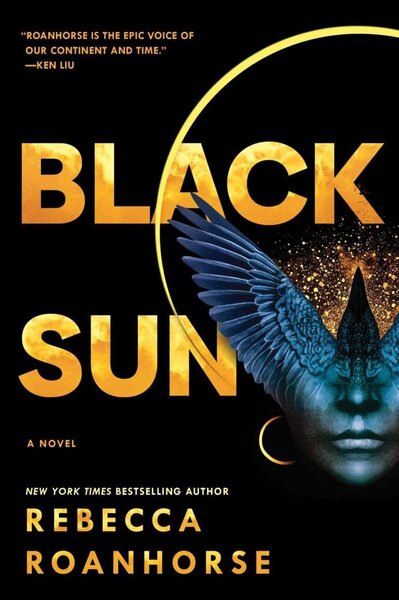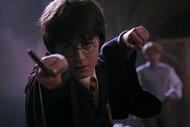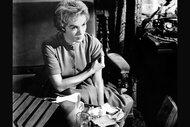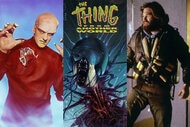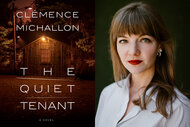Create a free profile to get unlimited access to exclusive videos, sweepstakes, and more!
Rebecca Roanhorse's Black Sun centers queerness in epic fantasy
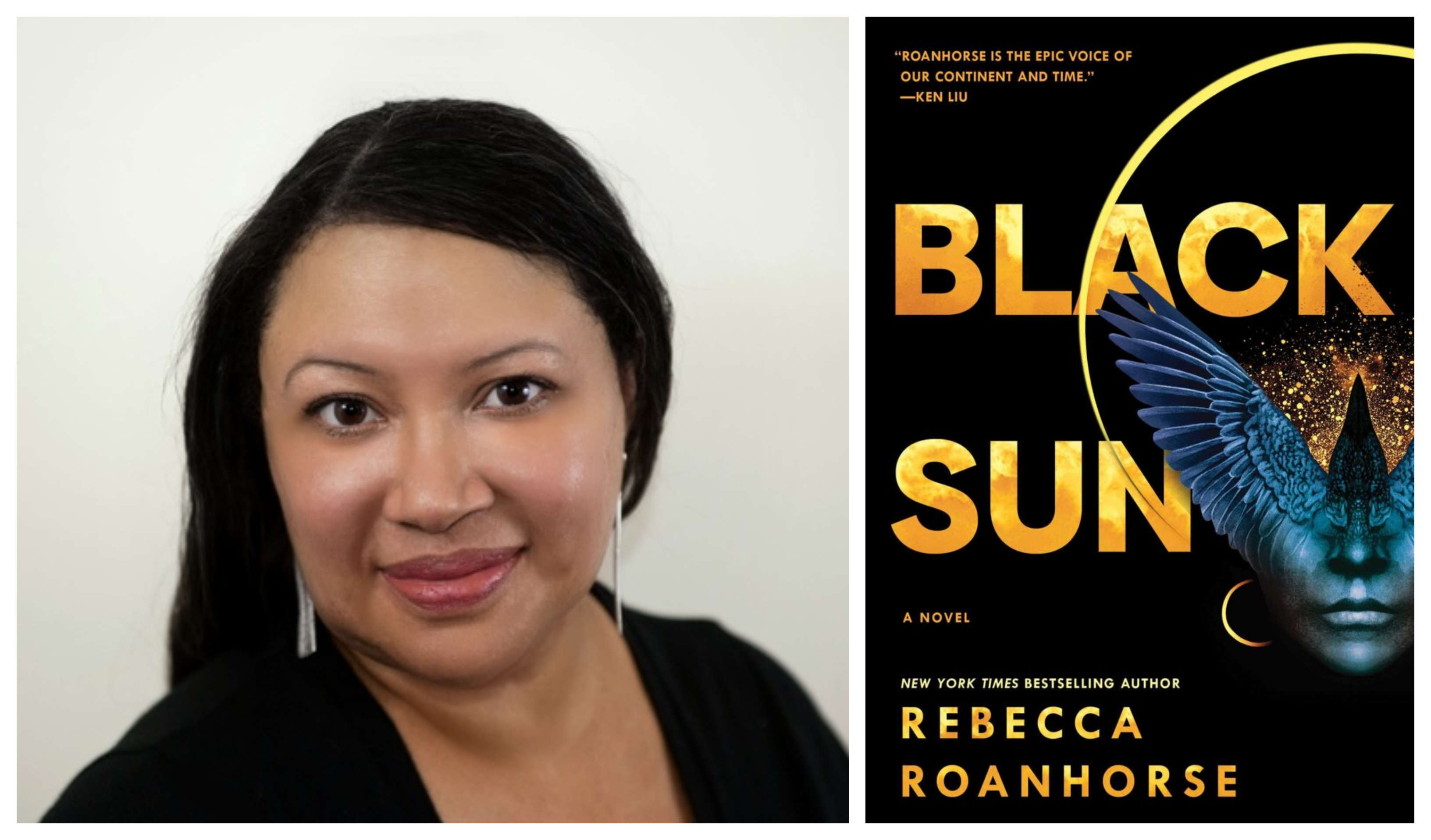
Rebecca Roanhorse's new novel Black Sun is out and you're going to want to get your hands on it right this instant.
Black Sun is an epic fantasy set in a world inspired by pre-Columbian Indigenous cultures. As the Convergence approaches, a sacred day when the moon and sun overlap, people from all over this fictional world come together. Some to celebrate and let loose in the metropolitan Tova, others for revenge and to see the Sun Priest laid low. It's a world filled with classic epic fantasy tropes like forbidden magic, political intrigue, and prophecies that may or may not turn out as anticipated, but it's also something remarkably novel. Black Sun is a deeply Indigenous and deeply queer epic fantasy.
The queerness in Black Sun isn't just interesting — it's effortless, casual, and quotidian. Queer characters just exist. They don't have big coming out moments or spend the bulk of the narrative fighting homophobia — though anti-queer discrimination influences some of their experiences. They try and fail and succeed and fight and lose and win and cry and have sex and live. They live. And perhaps simply living shouldn't be remarkable, but it is.
Sadly, it still feels rare to see queerness represented in popular epic fantasy, particularly in a positive light. While we have excellent examples of how queerness can be represented in epic fantasy, like Kacen Callender's Islands of Blood and Storm Book Series, N.K. Jemisin's Broken Earth Trilogy, and Kameron Hurley's The Worldbreaker Saga, positive queer representation is still woefully minimal. And in the wider body of literature, it's pretty common to see queer characters laid waste by the Bury Your Gays trope.
So, when I say that Roanhorse's queer characters live, know that I can say it with my full chest.
It's worth taking a moment here to acknowledge that the term queer would be anachronistic to apply to pre-Colombian Indigenous cultures. We know that the gender binary and queerness as other are products of colonization and white supremacy. In many Indigenous cultures, what we call queerness and transness are and have been not "other" but part of the norm. That said, the creator and the book live in our world where queerness and transness are discrete concepts and the gender binary is alive and well. So, I will continue to use the terms queer, queerness, trans, and transness, using them in their broadest definitions.
Spoiler Alert: Minor spoilers for Black Sun follow.
While there are lots of aspects of queerness to explore in Black Sun, the most pronounced is probably one of the four point-of-view characters: Xiala and how she experiences her fluid sexuality. Xiala is an incredible character because she's queer, comfortable with it, and unimpressed by the bigotry of others. That doesn't mean she has everything together. She enjoys fermented drinks a lot and has a hard time forming lasting relationships. Frankly, Xiala is the definition of bisexual disaster. And that's why we love her.
When we first meet her, our hero wakes up hungover in jail. At first, she can't recall why she's there but slowly she pieces together that the prior night she'd gotten very drunk and met a cute woman she spent the night with. As she figures out how to navigate the situation, we learn that Xiala is far from home, a suspect foreigner, some kind of magical, and from a community in which queerness is not just accepted but expected to some degree. We also learn that the woman she met is married and that when her husband walked in on them in his own home, Xiala punched him. As she cringes at the memory, she learns that her sleeping with a woman is a capital offense in the town where she's imprisoned.
It looks like our hero has reached a dead end (forgive me for the pun) when a fancy lord shows up, bribes the guard, and hires her to transport a holy man to Tova for the Convergence. Via boat. With a reluctant crew. In 20 days. As the winter approaches.
The odds are stacked against Xiala making it and the stakes are high, but she takes the offer, knowing just about anything is better than an execution — though there are a few things worse.
As Xiala embarks on her adventure, she has no idea that the man she's helping isn't just a holy man, but a god in waiting, nor does she realize what she has left to learn about herself. Without revealing anything major, let's just say Xiala's relationship to her body and her magics takes on a new dimension during a massive storm.
Her backstory is somewhat filled in, leaving room for exploration in future books. We know she was rejected by her people, the Teek, for some reason and that she's been making her way on her own amongst those who don't trust her. We know that she doesn't remember a time when she wasn't attracted to men, women, and other genders. We know that she's never loved someone the way she learns to love in Black Sun.
Xiala is an excellent queer character. Her motives are clear, her self-awareness and self-exploration are integral to her journey, and her attractions aren't up for debate. She's solid and firm in some ways and changing and fluid in others. She's complex, exciting, and, again, a real mess. In other words, she's exactly what we need from queer epic fantasy characters.
In addition to Xiala, there are numerous explicitly and implicitly queer characters. The Knife, one of the priests, is a nonbinary person who uses neo pronouns xe and xir. Xir former lover, a second point-of-view character, is a queer woman. There are also tertiary characters who are queer: a trans woman who is a healer for a resistance movement and a mentor for one of our main characters who uses neo pronouns. And these are just the characters I could be certain identified as something we would recognize as queer today. Given that this story is far from over, I'd say there's a chance both existing and yet-to-be-seen characters are queer in some sense. In fact, I have a feeling at least one major character is asexual and/or experiences gender outside of the binary.
I'm deeply grateful that Roanhorse decided to center queerness in her epic fantasy Black Sun, not just at the character level, but in the narrative itself. Black Sun is about many things, including the rejection of control, fighting oppression, and love against all odds–all deeply queer themes.
Black Sun is not to be missed and I can't wait to see where the story goes from here.
